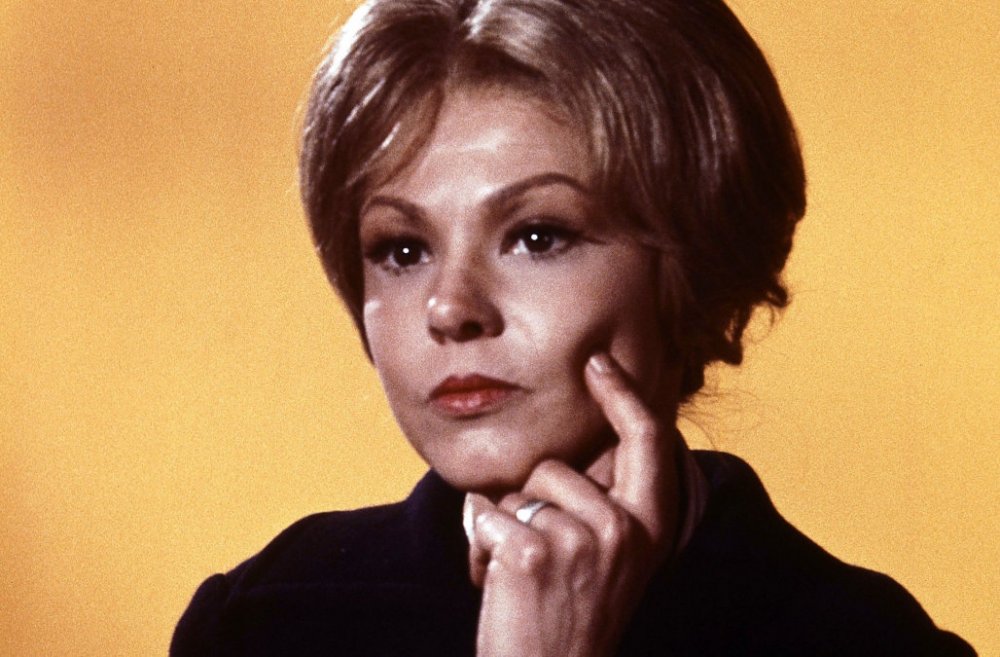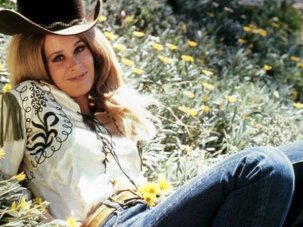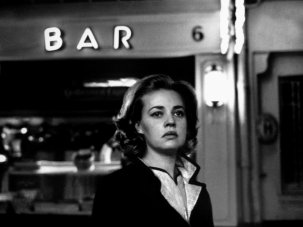Some movie stars are masters of the grand entrance. It is impossible to forget the imposing, portrait-like first appearance of Elizabeth Allen in John Ford’s Donovan’s Reef (1963) – seated in a boardroom, hands clasped, mouth pursed, hat slouched – or the fleeting, sliver-like glimpses of Jessica Lange in the kitchen of her husband’s roadhouse in Bob Rafelson’s The Postman Always Rings Twice (1981), leading to a close-up punctuated by the sound of dishes. These performers register the moment we first see them, but others require an entire film to emerge in full.
Such a star was Barbara Harris, the renowned veteran of the Chicago theatrical troupe the Compass Players and subsequent leading lady on Broadway and in cinemas. Harris died this month, aged 83.
Harris certainly made an immediate impression. The native of Evanston, Illinois, looked and sounded unlike any actress of her era: not iron-jawed like Faye Dunaway or Jane Fonda, she called to mind a slightly spaced-out cherub. Her combination of alternately squinting and googly eyes, tufts of sandy-blonde curls and sing-song voice was sui generis. Maybe Diane Keaton had some of her shabby loveliness, but even Keaton seemed more grounded than her altogether flightier peer. Why was Harris never one of Woody Allen’s neurotic heroines?
At the same time, Harris’s power as a performer was often deferred; in film after film, she takes us by surprise. In Robert Altman’s Nashville (1975), for example, Harris plays amateur singer Albuquerque with unmistakable aplomb, but it takes a while before we separate her from the rest of the film’s country-western social climbers. Throughout the film, she was, as Pauline Kael wrote, “hovering around the action”.
In fact, Harris emerges – and her co-stars recede from view – only at the film’s conclusion: During a benefit concert held in support of a third-party presidential candidate, Barbara Jean (Ronee Blakley) and Haven Hamilton (Henry Gibson) are forced from the stage after being shot by a deranged gunman. Amid the fracas, a gallery of otherwise memorable supporting players – Geraldine Chaplin, Scott Glenn, Lily Tomlin – are left to stare and wonder. Harris, however, finds herself with a microphone and begins to belt out It Don’t Worry Me. Her touchingly decisive inflection convinces us that she really believes the lyrics.
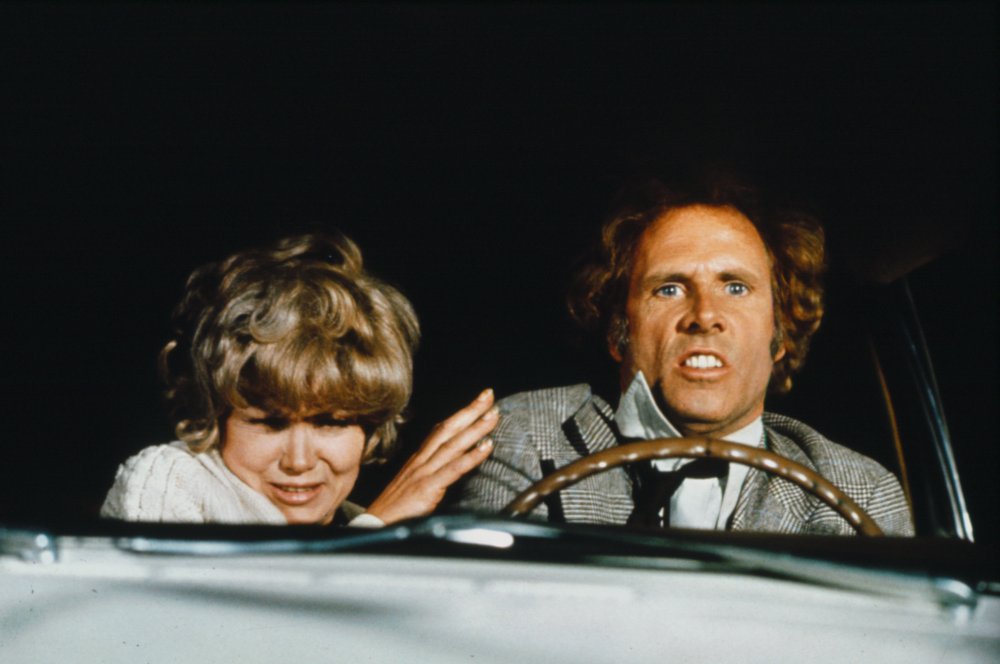
Family Plot (1976)
Similarly, in Alfred Hitchcock’s Family Plot (1976), Harris charms as the psychic Blanche, whose gifts for extrasensory perception are very much in doubt. At the same time, she can’t quite compete with the sultry manner of her co-star Karen Black or the rangy, aw-shucks appeal of her on-screen beau, Bruce Dern. Yet, like Altman, Hitchcock had the wisdom to end with Harris, who – after seemingly demonstrating her psychic bona fides – lingers for a moment on a staircase. Harris can sometimes be the most distracted of actresses, sometimes pausing an extra beat before each line, yet she focuses long enough to train her eyes on the audience and wink.
Harris’ best performance came as the overlooked wife of Alan Alda’s senator – and mother to his two children – in Jerry Schatzberg’s The Seduction of Joe Tynan (1979). Harris received second billing, behind Alda, ahead of Meryl Streep (appearing as a lawyer paramour of the senator).
Schatzberg’s camera tends to linger on both Harris and Streep, whose subtle performances contrast with the more careful, canned style of Alda (then best known as the star of the sitcom version of M*A*S*H). But the director is especially attentive to Harris, whose leafy domestic existence in New York – where her character has carved out a life for herself as a psychologist while her husband obsesses over bills and subcommittees – is upended over the course of the film.
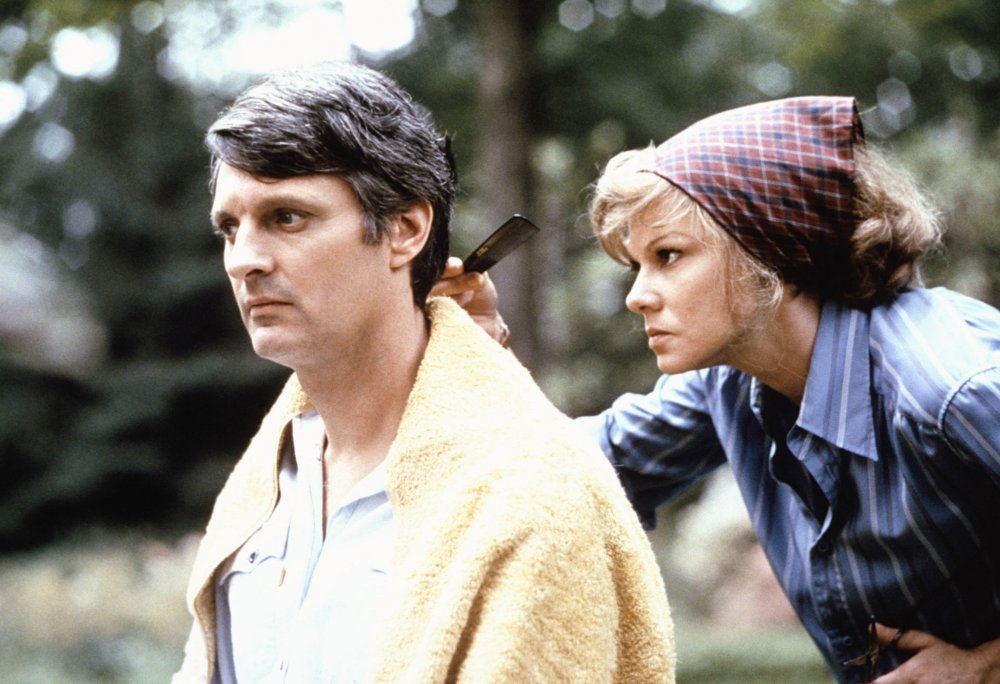
The Seduction of Joe Tynan (1979)
“I think she was fragile, but I think she was strong,” Schatzberg said this week by phone. “She was very vulnerable in many ways, and I just thought that some of that vulnerability was good in this character, who felt for a while very secure in her marriage, and all of a sudden, she’s so threatened.”
Harris was married briefly to Compass Players co-founder Paul Sills and had no children. However, inevitably she played many maternal figures on screen, not just in Joe Tynan, but also Freaky Friday (1976), in which she was Jodie Foster’s mother, and Peggy Sue Got Married (1986), in which she was Kathleen Turner’s. She lent her vocal talent to Garry Trudeau’s animated A Doonesbury Special (1977); as feminist Joanie Caucus, she was – again – mother hen to Mike, Zonker and B.D.
“Looking at her, I could see her being a mother,” Schatzberg said. In one striking scene in Joe Tynan, Harris seems surprised at herself after she yells at her teenage daughter (caught in the act of hitch-hiking); the actress sometimes seems to float outside of her own performances.
The Seduction of Joe Tynan was another farewell – like the song at the end of Nashville or the wink that finished Family Plot. Harris had a starring role in Hal Ashby’s off-kilter romance Second-Hand Hearts, but that film was produced two years before its release in 1981. In the 1980s, then, Harris appeared in just three films; she made one more, George Armitage’s Grosse Pointe Blank (1997), in the 90s.
Before we had a chance to really take stock of Barbara Harris’ one-of-a-kind screen presence, she was gone from the screen. And now she is gone for good.
“I think she deserves more credit than she’s been given,” Schatzberg said.
-
The Digital Edition and Archive quick link
Log in here to your digital edition and archive subscription, take a look at the packages on offer and buy a subscription.




